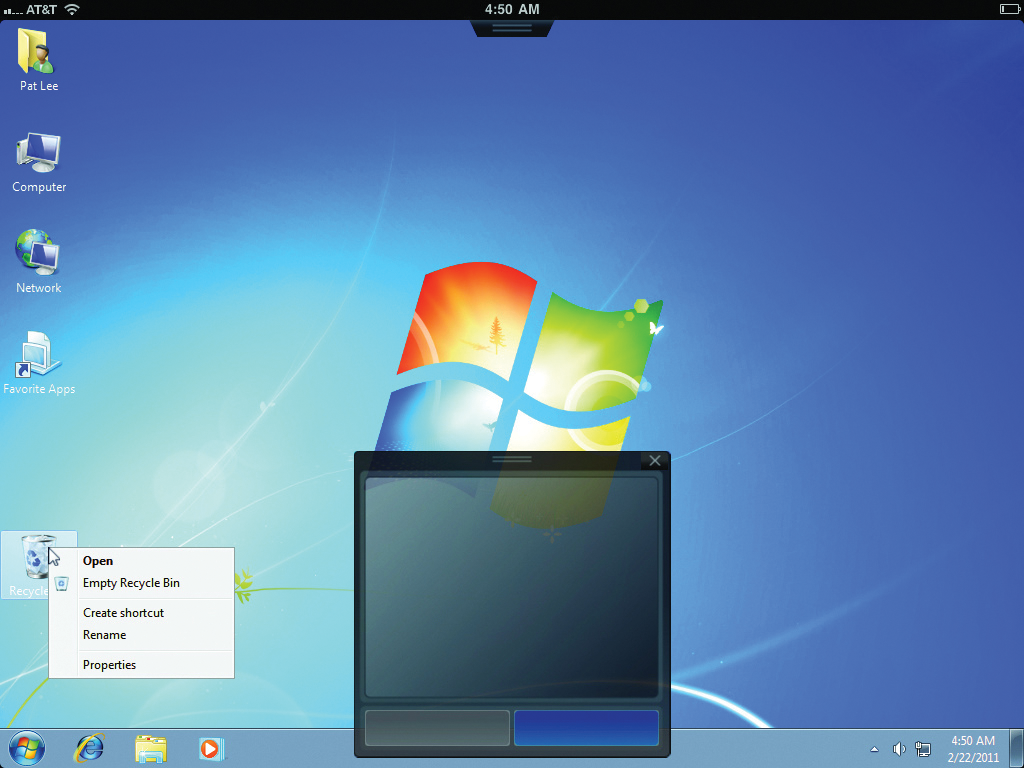Dispatches from the world of IT
News
Get Ready for ARM: Ubuntu Expanding Server Offering
ARM is not just for netbooks, phones, and embedded devices anymore. ARM processors are becoming increasingly competitive for server use. An indicator of ARM's arrival in the server market is that Canonical is now planning an ARM version of Ubuntu Server, which will be available when Ubuntu 11.10 is released this Fall.
As reported on the VAR Guy blog http://www.thevarguy.com/2011/06/16/canonical-ubuntu-server-embracing-arm-architectures/, a blueprint has appeared on Launchpad, making ARM a priority for the 11.10 release with an eye toward having a supportable release available for Ubuntu 12.04. According to the blueprint, the plan is "to achieve a high quality level under functional and load conditions for the identified use cases. The Ubuntu team plans to perform a level of testing equivalent to x86 server offerings, then they will work with upstream projects to resolve as many issues as possible within the Ubuntu ARM Server project's time and resource constraints."
Ubuntu 12.04 will be a Long-Term Support (LTS) release that will be in service for five years – starting just in time (Canonical hopes) to catch the coming wave of ARM-based servers.
Tudor Brown, president of ARM Holdings, has said he believes ARM-based servers will gain a foothold on the market but expects it to take several years before the sales reach significant numbers. ARM is gaining attention in the server market because of its relatively low power requirements and because more powerful chips are seen as overpowered for some tasks – like running individual web servers. Still, ARM has a long way to go before it can stand shoulder-to-shoulder with Intel and AMD in the server room. It lacks 64-bit support or virtualization extensions, two must-have requirements for some use cases.
However, if ARM does take off, Canonical will be well-poised to take advantage of it.

VMware Gets Desktop Ready
VMware is looking to help a lot of people deal with high gas prices. The company announced its VMware Ready Desktop Solutions program on June 22. Ready Desktop Solutions is a validation program for "desktop virtualization solution architectures" provided by resellers.
The program is particularly targeted at US government agencies, which have to comply with the Telework Act of 2010 – heads of every federal agency are tasked with developing IT infrastructure that supports telework (or telecommuting, as it is more commonly known).
VMware's program will provide certified hardware stacks that work with its VMware View portfolio. VMware View delivers desktops as a managed service that are accessible remotely on a variety of clients, including desktop systems, laptops, and even the iPad.
However, the platform can be a bit tricky to spec out, so VMware is providing this program of certified systems that work with VMware View. Systems are immediately available from HP and Force 3.
For more on the VMware View program, including VMware's TCO calculator, head to VMware's Ready Desktop Solutions page:
http://www.vmware.com/solutions/desktop/vrds/

Xen Founders Leave Citrix
Xen founders Simon Crosby and Ian Pratt, who have worked for Citrix since Citrix purchased XenSource in 2007, announced they are leaving the company to found a new company called Bromium.
Nobody's giving specifics yet, but Bromium is supposed to "target the intersection of virtualization and security." According to the Citrix announcement, the new company will be "highly complementary to the Citrix virtualization, networking, and cloud strategy." In his parting post on the Citrix blog http://blogs.citrix.com/2011/06/22/toward-trusted-infrastructure-for-the-cloud-era/ Crosby says he believes the "biggest barrier to the adoption of service-provider offered cloud services is the (understandable) lack of trust on the part of enterprise customers. Clouds are viewed as risky and potentially insecure, at a time of rising cyber-crime, and there is also the issue of reliability."
The company isn't disclosing its technology or products but says that "We are fusing deep virtualization and security systems DNA to build a powerful set of tools that can offer continuous endpoint protection. Bromium does not intend to compete with any virtual infrastructure or security vendor."
Bromium recently raised US$ 9.2 million in a series A round of venture funding.
HP Sues Oracle for Itanium
Oracle and HP aren't getting along very well these days. Take, for instance, the lawsuit against Oracle filed by Hewlett-Packard in mid-June. If you remember, Oracle announced in June it would no longer be developing new software for HP's Itanium platform. According to Oracle (which recently hired former HP CEO Mark Hurd and got sued for that by HP too), Itanium doesn't have a future.
HP, however, doesn't want to lose Oracle support for its platform. The company started with a public relations press release by calling out Oracle publicly. When Oracle didn't back down, HP decided to roll out its lawyers. Oracle says it knows "for certain" that Intel has plans in place to end-of-life Itanium and says it's going to reveal the plans in court.
HP claims that Oracle is contractually obligated to continue development for Itanium, but Oracle claims the company was asking in September 2010 for Oracle to make guarantees of long-term support. It looks like it's going to take a judge to figure who's right. Meanwhile, anybody who's running Oracle products on top of Itanium and HP-UX has to feel a bit nervous. Rumors of Itanium's demise have run rampant almost since the chip went on the market. HP has about 90% of the Itanium market, so it has a lot to lose from an Itanium failure.
Dropbox Drops the Ball
Here's something you never want to hear from a service provider that stores your files: Due to a bug, all of your files were accessible to anyone – no password required. That's exactly what Dropbox had to tell its users following a code update on June 19.
According to Dropbox CTO Arash Ferdowsi http://blog.dropbox.com/?p=821 (right), the company pushed out an update at 1:54pm, and the problem was discovered at 5:41pm US Pacific Time. The bug was fixed by 5:46pm – giving users a window of nearly four hours when anyone could access their files. The company says only a very small number of users accessed the system during that time – less than 1 percent – but the problem was reported via Pastebin by Christopher Soghoian, so some of that activity could have been unauthorized accesses.
The company has emailed anyone who was seen logging in during that time, so if you were affected, you should have gotten a notice. Ferdowsi has also apologized, saying "We are scrutinizing our controls, and we will be implementing additional safeguards to prevent this from happening again." One hopes Dropbox is successful, but this episode is a good reminder that any sensitive information stored on "cloud" services should be encrypted.

